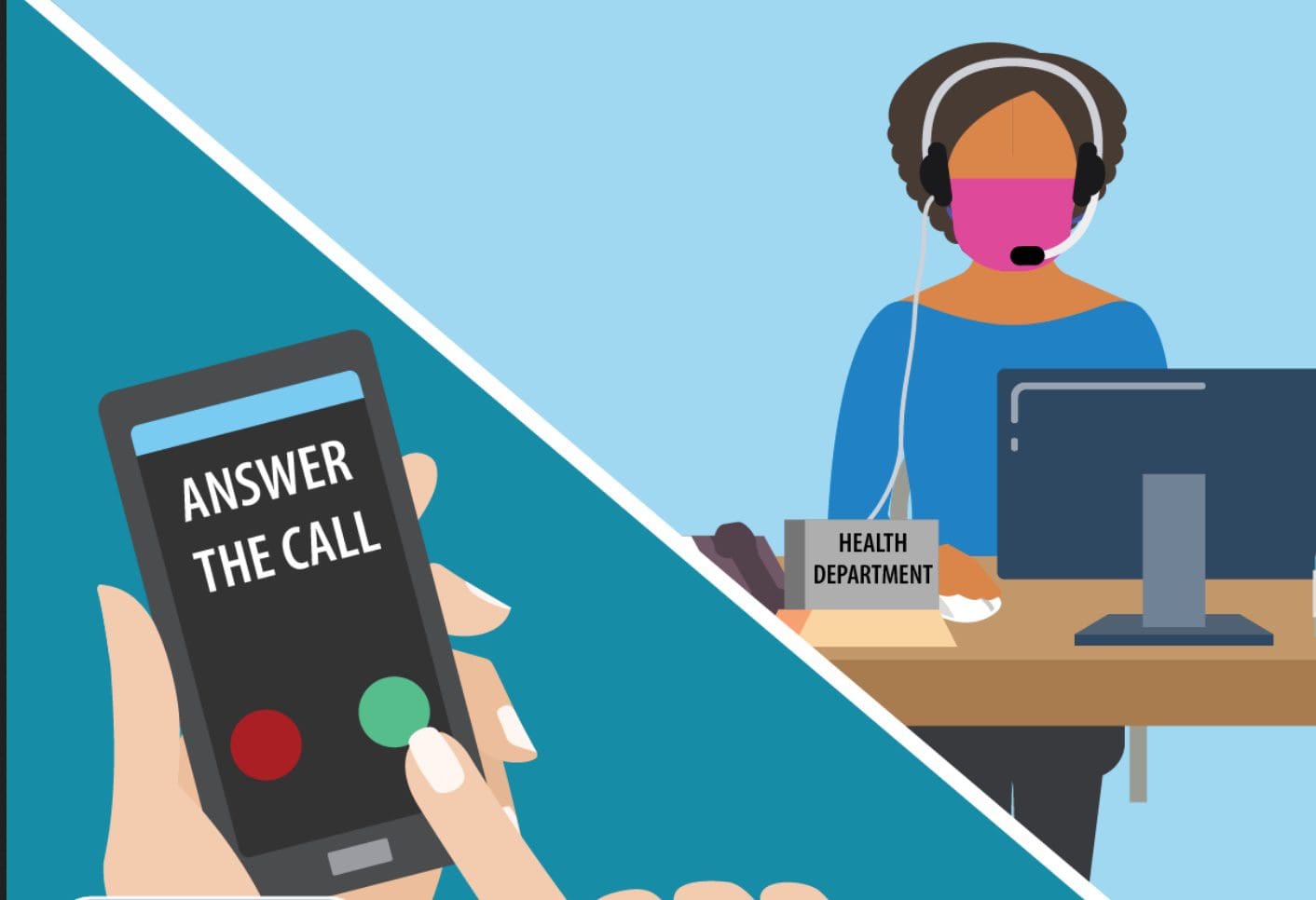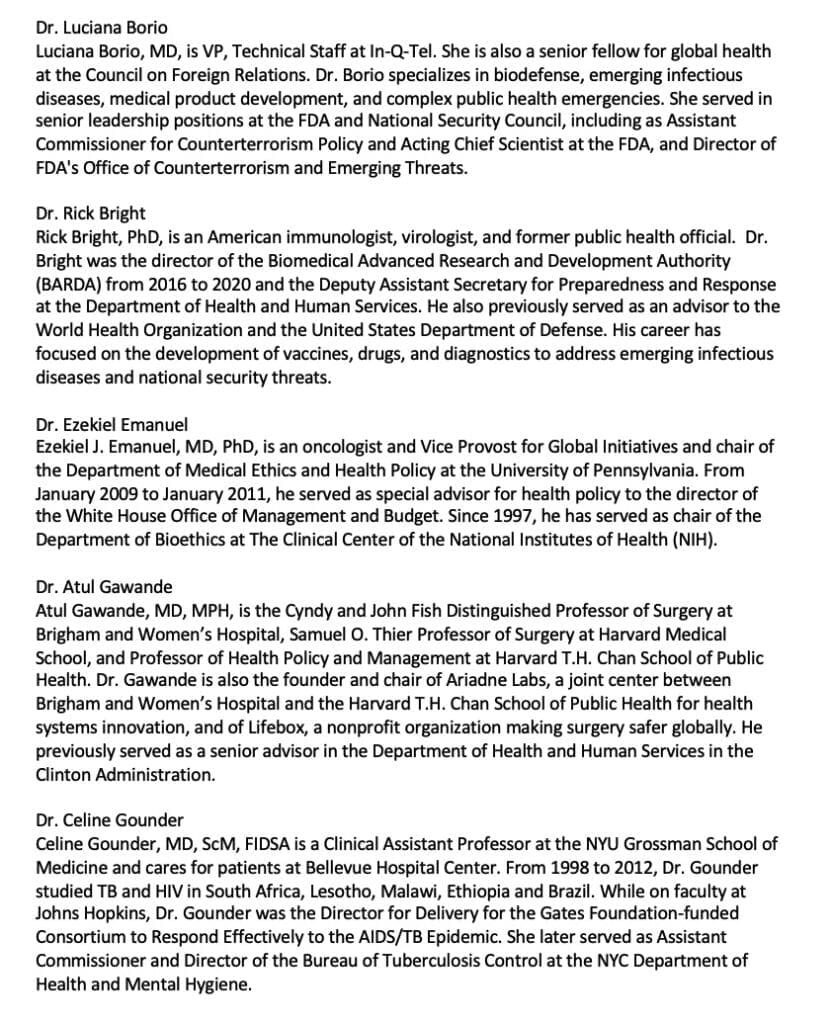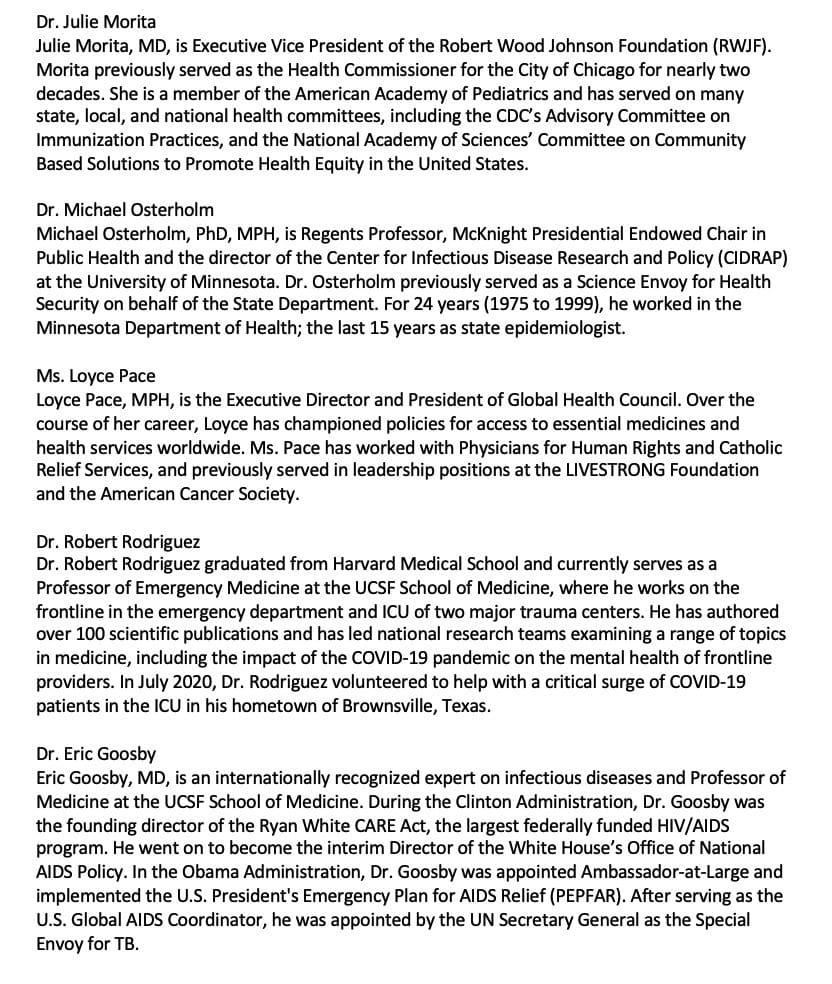Search Posts
Recent Posts
- Writer Herb Weiss’ 45 years of Advocacy on Aging now Archived at Rhode Island College Library Special Collection June 23, 2025
- Providence Biopharma, Ocean Biomedical, Notified of Termination of License Agreements with Brown University, RI Hospital June 23, 2025
- Networking Pick of the Week: Early Birds at the East Bay Chamber, Warren, RI June 23, 2025
- Business Monday: Dealing with Black and White Thinking – Mary T. O’Sullivan June 23, 2025
- Rhode Island Weather for June 23, 2025 – Jack Donnelly June 23, 2025
Categories
Subscribe!
Thanks for subscribing! Please check your email for further instructions.

Your Coronavirus Update – Today – Nov. 10, 2020
NATIONAL & INTERNATIONAL
Pfizer announces new vaccine 90% effective in COVID19 prevention. This is going to be a 2-dose, 3 week-apart injection. Front line health workers most likely to be first. In the summer Pfizer, BioNTech received $1.95 Billion advanced Covid-19 vaccine order from U.S. Government. See our story, here:
“The results are really quite good, I mean extraordinary,” – Dr. Anthony Fauci.
A successful Pfizer candidate bodes well for some of the other vaccines that are currently in trials.
https://twitter.com/i/status/1325853605530775568
Moderna vaccine expected to be close behind in pubic announcement.
Eli Lilly obtained emergency ok for Neutralizing Antibody treatments.
https://twitter.com/i/status/1325958940270727168
HUD Secretary Dr. Ben Carson tests positive and is doing well. His aid, adviser David Bossie, has also tested positive.
Since the World Series, the Dodgers have had 9 members test positive for COVID
Coronavirus cases hit record numbers in Virginia, Maryland
Monday morning Joe Biden released his Build Back Better COVID19 Plan, just after releasing his list of members on his COVID Task Force. After announcing the committee, and his plan, he addressed the nation and primarily talked about the importance for all Americans to wear a mask. Once again, he took no questions.
His members are:
Plans:
The Biden COVID-19 plan is here: https://buildbackbetter.com/priorities/covid-19/
The 7 point plan consists of:
Ensure all Americans have access to regular, reliable, and free testing.
Fix personal protective equipment (PPE) problems for good.
Provide clear, consistent, evidence-based guidance for how communities should navigate the pandemic – and the resources for schools, small businesses, and families to make it through.
Plan for the effective, equitable distribution of treatments and vaccines — because development isn’t enough if they aren’t effectively distributed.
Protect older Americans and others at high risk.
Rebuild and expand defenses to predict, prevent, and mitigate pandemic threats, including those coming from China.
Implement mask mandates nationwide by working with governors and mayors and by asking the American people to do what they do best: step up in a time of crisis
The White House COVID-19 plan is here: https://www.cdc.gov/coronavirus/2019-ncov/cdcresponse/index.html
Students at Boston’s special education day schools could be returning to their classrooms within days.
MBTA plan cuts trains, bus routes, ferries to match pandemic ridership patterns
El Paso, TX deaths surging so fast, they now need have 10 mobile morgues to store deceased bodies, up from 4 last week.
RHODE ISLAND & VICINITY
Access to Coventry public buildings curtailed
100 more appointments were added at the Convention Center testing site.
Slow-spending R.I. has two months to disperse $900M in CARES Act money or risk losing it
A new site in North Kingstown has been opened for testing.
NBC10 reporting first asymptomatic test available in RI is Saturday – you can try for the North Kingstown site.
Providence Police have over 10 members testing positive
No fans will be allowed at Gillette Stadium for the remainder of the 2020 season.
From the RI Dept. of Health:
What You and Your Close Contacts Should Do If You Have COVID-19
If you are positive for COVID-19, RIDOH will call you within a few days. However, if you learn that you are positive for COVID-19 before RIDOH calls you, you should take action right away. Do not wait for RIDOH to call you to start making changes in your life and your daily routine.
What you need to do if you test positive
- Stay home (isolate) for at least 10 days. Someone with COVID-19 needs to isolate even if they do not have symptoms of COVID-19.
- If you have symptoms, stay home for at least 10 days since you started having symptoms. If you do not have symptoms, stay home for at least 10 days from the day you were tested.
- Have things you need delivered. Ask friends and family to drop off items that you need at your door, like food and other necessities.
- Do not go to work or school for at least 10 days. Call your employer or school to inform them that you have tested positive and will be out for at least 10 days.
- Call your primary care provider (if you have one) and inform them that you have tested positive.
- If you have a weakened immune system (also known as being “immunocompromised”) you may need to isolate for 20 days. Talk to your healthcare provider if you think this applies to you.
- Do your best to keep a distance from those you live with.
- If you can, use a separate bathroom and bedroom. Stay out of the kitchen and other rooms where people in your home gather.
- If you must be in the same room as others, wear a mask.
- Get help if you feel sick. Call your primary care provider or an urgent care center to get medical advice.
- Call 911 or the nearest hospital if you think you are having a medical emergency (e.g., trouble breathing, persistent pain or pressure in the chest, new confusion, inability to wake or stay awake, or bluish lips or face.)
- Tell them you have COVID-19.
- Write a list of the people you have been in close contact with (within 6 feet for at least 15 minutes) during the two days before you got tested or started having COVID-19 symptoms. These are people who might get COVID-19 from being around you.
- Consider any contacts you spend time with, visit, volunteer with, ride in a car with, or attend a place of worship with.
- Let your close contacts know you have COVID-19.
- Answer the phone when RIDOH calls. Answering questions about why you were tested, your symptoms, and who you have been in close contact with will help RIDOH slow the spread of COVID-19.
- RIDOH can also help you get some things you may need while you need to stay home.
- You can sign up for a text message monitoring program. Through this program, you can send texts to RIDOH if you need things while at home, such as food and other supports.
- If resources are needed right away, contact the COVID-19 Information line at 401-222-8022 (Monday to Friday, 8:30 a.m. to 4:30 p.m.) or 211 (after-hours).
- For more general questions, you can write to RIDOH.COVID19Questions@health.ri.gov.
What people you live with need to do if you test positive
- Everyone you live with needs to stay home too. This is because they have been in close contact with you while you have had COVID-19. They could get COVID-19 and spread it to others.
- While you stay at home, if you cannot avoid close contact with people you live with and keep a physical distance of 6 feet all the time, they must stay at home (quarantine) for the time that you are infected (10 days) plus an additional 14 days.
- This is because symptoms can develop up to 14 days after the last day of being in close contact with someone who has COVID-19.
- While you stay at home, if you can avoid additional contact with people you live with and completely separate from them by staying in a separate bedroom all the time, they must stay at home (quarantine) for 14 days from when you began home isolation.
- If you are able to stay in your own room, people in the house should bring you your food and check on you from a distance.
- Call the employers and schools of everyone living in your household to let them know people will not be at work or school. Everyone who lives together should plan on being home for anywhere from 14 days to 24 days. RIDOH will give you the exact dates when they call.
- Watch for all the symptoms of COVID-19 in everyone living with you.
- Do a temperature check twice a day (fever is greater than 100.4 degrees F).
- Get tested if any symptoms of COVID-19 are present.
- Call your healthcare provider for help getting tested or look online for a testing site.
- If you get tested during your quarantine and test negative, you still must remain in quarantine.
- If you get tested during your quarantine and test positive, you should continue to stay at home and follow the instructions above for what you need to do if you test positive.
What your close contacts who don’t live with you need to do if you test positive
Generally, a close contact is someone you have been within six feet of for 15 minutes or more starting two days before you got tested or started having symptoms of COVID-19. Someone that you briefly interacted with from a distance of more than 6 feet is not a close contact.
- Stay home for 14 days from the day they were last with you.
- Call their employer or school to let them know they are a close contact of a person with COVID-19 and are staying at home awaiting a call from RIDOH.
- RIDOH can provide an absence note from work or school for people in quarantine.
- Watch for symptoms of COVID-19.
- Watch for all the symptoms of COVID-19.
- Check a temperature twice a day (fever is greater than 100.4 degrees F).
- Get tested if any symptoms of COVID-19 are present.
- Call your healthcare provider for help getting tested or look online for a testing site.
- If you get tested during your quarantine and test negative, you still must remain in quarantine.
- If you get tested during your quarantine and test positive, you should continue to stay at home and follow the instructions above for what you need to do if you test positive.
- Answer the phone when RIDOH calls. RIDOH will call close contacts to provide information about quarantining. Following quarantine instructions from RIDOH can slow the spread of COVID-19. RIDOH can also help get some things for people who need to stay home.


